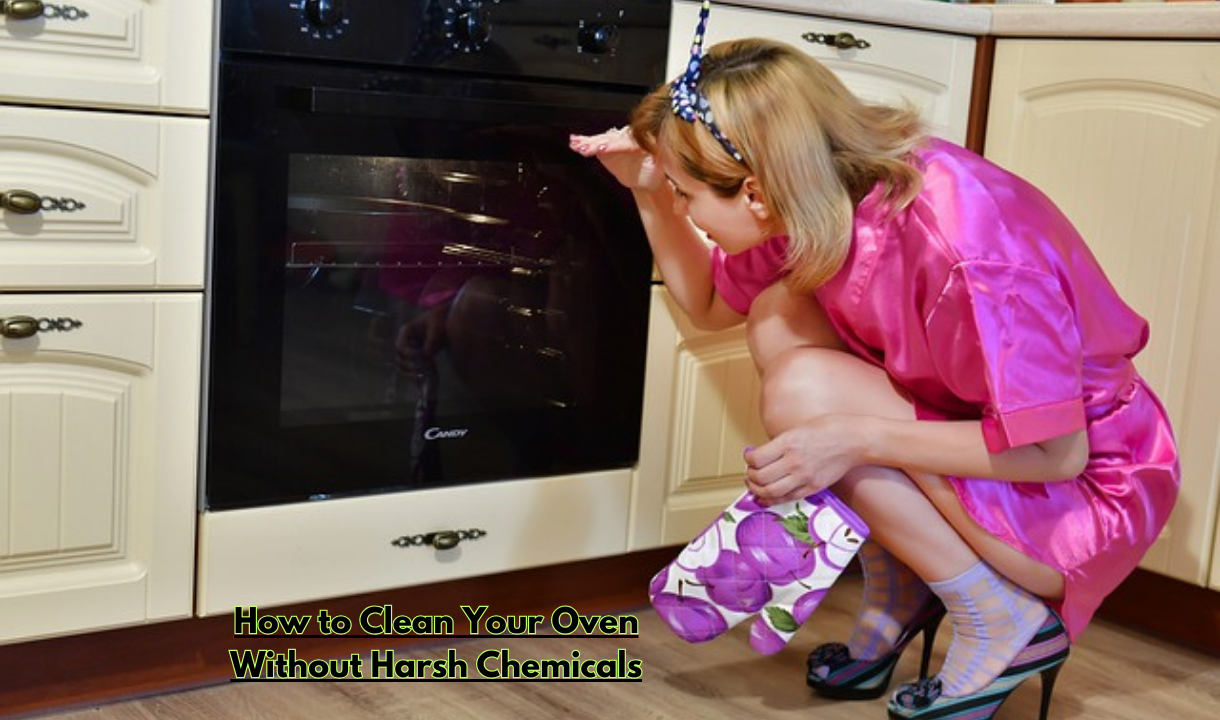How to Clean Your Oven Without Harsh Chemicals
Keeping your oven clean is crucial not just for aesthetic reasons but also for your health and the taste of your food. However, many commercial oven cleaners are laden with toxic substances that can irritate your skin, eyes, and lungs. Some even release harmful fumes into the air. Is there a better, safer way to tackle baked-on grease and food residue? Absolutely! By adopting chemical-free methods, you can maintain a spotless oven while ensuring the safety of your household and the environment.
Why Avoid Harsh Chemicals?
Environmental Concerns
Most chemical cleaners contain harmful substances like ammonia and lye that can contaminate water supplies when washed down the drain. These chemicals contribute to environmental pollution and take a toll on aquatic ecosystems.
Potential Health Risks
Harsh cleaning products can cause burns, respiratory issues, and allergic reactions. Over time, prolonged exposure to such chemicals might contribute to serious health concerns. Switching to natural solutions ensures you minimize these risks.
Benefits of Chemical-Free Oven Cleaning
Safer for Your Family
Natural cleaning solutions are gentle and free of allergens, making them ideal for homes with kids and pets.
Eco-Friendly and Sustainable
Opting for chemical-free cleaning methods helps reduce your carbon footprint, keeping the planet healthier for future generations.
Cost-Effective
You likely already have most natural cleaning ingredients in your kitchen, making it an economical alternative to store-bought cleaners.
Essential Supplies for Natural Cleaning
Here’s what you’ll need to clean your oven the natural way:
- Baking soda
- White vinegar
- Lemon juice
- Dish soap
- A spray bottle
- A sponge or scrub brush
- Old towels or cloths
These non-toxic supplies work wonders without putting your health or the planet at risk.
Step 1: Preparing Your Oven
Before diving into cleaning, ensure your oven is completely cool. Remove any pots, pans, or racks, and place old towels around the oven’s base to catch any drips. This preparation not only protects your kitchen floors but also streamlines the cleaning process.
Step 2: Removing Loose Debris
Start by sweeping out crumbs and burnt debris with a damp cloth or handheld vacuum. The cleaner the surface, the more effective your natural solutions will be. Don’t forget to check the corners, where debris tends to accumulate.
Step 3: Creating a DIY Cleaning Paste
To make a natural cleaning paste:
- Combine 1/2 cup of baking soda with 2-3 tablespoons of water.
- Mix until it forms a thick, spreadable consistency.
This baking soda paste is a powerhouse for cutting through grime and grease.
Step 4: Applying the Cleaning Paste
Spread the paste generously across the interior of your oven, focusing on tough spots with baked-on grease. Avoid the heating elements to prevent damaging them. A small brush or old toothbrush can help apply the paste more precisely.
Step 5: Letting It Sit
Let the baking soda paste work its magic for 12-24 hours, depending on the level of dirt. During this time, the paste will loosen grime, making it much easier to scrub away.
Step 6: Scrubbing and Wiping
After letting the paste sit, use a damp cloth to wipe away as much as possible. For stubborn spots, use a scrub brush and gentle circular motions. Follow up by spraying white vinegar onto any remaining residue, which will create a bubbling reaction that lifts the last bits of grime.
Cleaning Oven Racks Without Harsh Chemicals
Fill your bathtub with warm water, a few drops of dish soap, and a cup of white vinegar. Let the racks soak for 6-8 hours or overnight. Once soaked, scrub with a sponge to remove residue, rinse, and dry before placing them back in the oven.
Maintaining a Clean Oven Naturally
- Wipe after each use: Clean small spills immediately with a damp cloth.
- Use liners: Silicone oven liners can catch food drips and protect your oven floor.
- Deep clean regularly: Perform a deep clean every 2-3 months to avoid buildup.
Alternative Natural Cleaning Solutions
Don’t have baking soda? Try these alternatives:
- Lemon juice: Its natural acidity works great on grease.
- Vinegar spray: Mix equal parts water and vinegar for a quick, all-purpose cleaner.
- Salt: Combine with water to create a gentle abrasive cleaner for minor stains.
Dealing with Stubborn Stains
For extra-difficult spots, sprinkle a bit of salt onto the stain and squeeze fresh lemon juice over it. Let the mixture sit for 30 minutes before scrubbing it off.
Conclusion and Final Thoughts
By using natural cleaning techniques, you’ll avoid the hazards of commercial chemicals while still achieving a spotless oven. It’s safer for your health, better for the environment, and more economical. Plus, you’ll have the peace of mind that comes with knowing you’ve made a better choice for your family and the planet.
FAQs
1. How often should I clean my oven naturally?
For best results, deep clean your oven every 2-3 months using natural methods.
2. Can I use natural cleaning methods on a self-cleaning oven?
Yes, natural cleaners are gentle and won’t damage the oven’s self-cleaning components.
3. Will natural solutions remove all stains?
Natural solutions effectively tackle most stains, but extremely old or stubborn grime may require more effort or repeat applications.
4. Are there any natural store-bought options?
Some brands offer eco-friendly oven cleaners; check ingredient labels for natural components.
5. What’s the quickest way to maintain a clean oven?
Wipe spills immediately after cooking to prevent them from hardening.

Thanks for sharing. I read many of your blog posts, cool, your blog is very good.
**mitolyn**
Mitolyn is a carefully developed, plant-based formula created to help support metabolic efficiency and encourage healthy, lasting weight management.